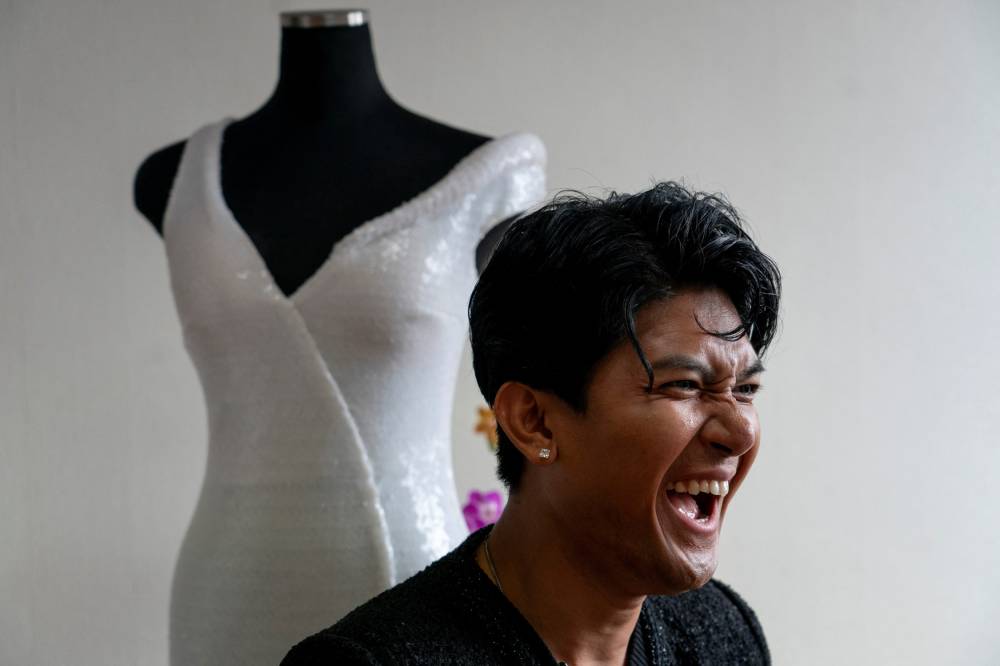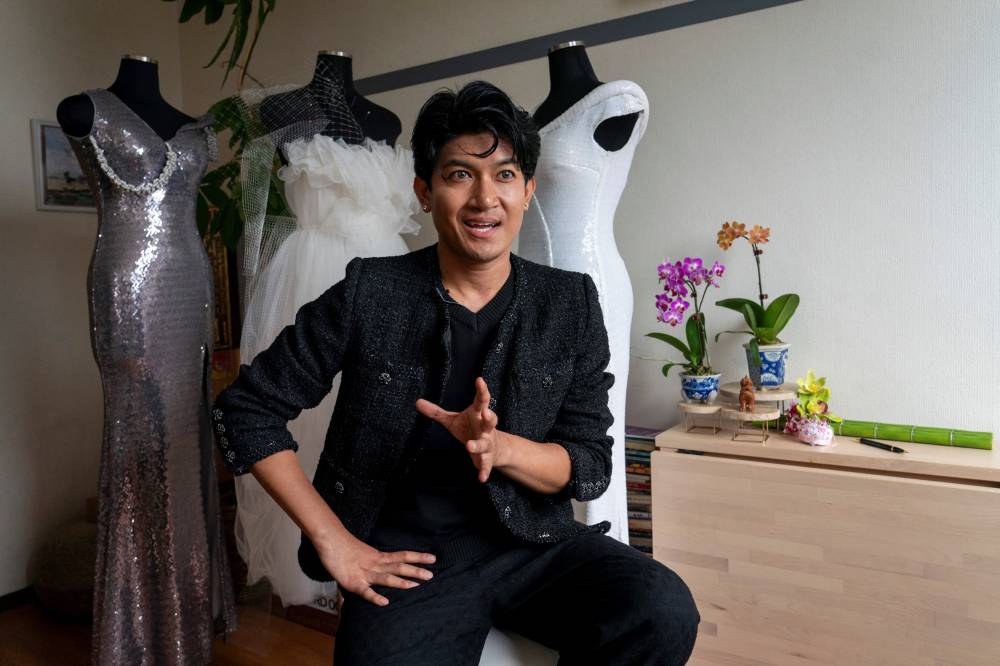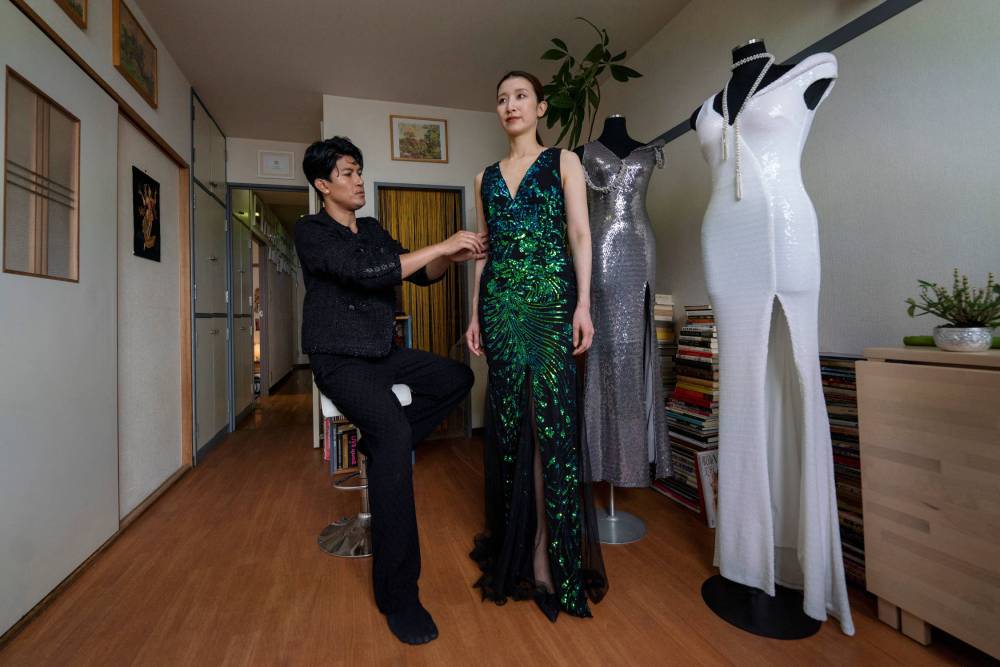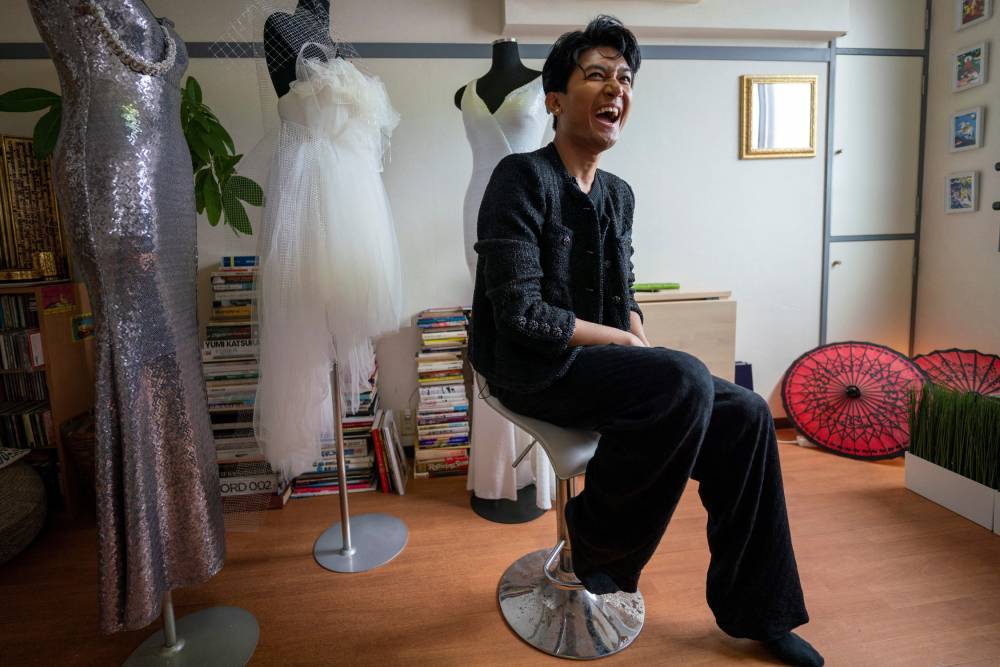‘Fashion power’: Myanmar refugee turns Tokyo designer

TOKYO—Having fled Myanmar for Japan with his parents as a child, Shibuya Zarny began his fashion career as a model in Tokyo and went on to make clothes for royalty.
“Fashion is an art that has enabled me to survive,” the designer, whose label recently held a 10-year anniversary show in Bangkok, told Agence France-Presse (AFP).
The runway looks featured nods to Southeast Asian design, from leaf and eye motifs to jewellery worn under colorful jackets by shirtless male models.
Zarny’s parents came to Japan as political refugees in 1993 when he was eight. As a teenager, dressing with style became a way for him to avoid being bullied.

His mother first taught him dressmaking, and before long Zarny, with his slim silhouette and intense stare, had been scouted as a model on a dance floor in the capital.
“At the time we had no Instagram,” he recalled, so to see and be seen he would hang out at bars, arcades and novelty photo booths called purikura.
Zarny often went to Shibuya, the youthful district he later took as his first name.
“At that time Shibuya was really dangerous. There was a whole underground scene” with yakuza gangsters, he said.
As his career took flight, Zarny launched his eponymous label in 2011, a year before finally securing Japanese nationality.

The fledgling designer gifted 70 longyi—a traditional garment that ties at the waist—to Myanmar democracy leader Aung San Suu Kyi.
She wore a lilac one to accept the Nobel Peace Prize in 2012, a moment which Zarny said “changed my life.”
Alongside his catwalk endeavors over the following years, Zarny acted as a mediator between Japan and Myanmar.
‘Brave heart’
He even accompanied Japan’s Princess Yoko of Mikasa—dressed in a Zarny original —on a visit there in 2019.
Now, with Suu Kyi detained since Myanmar’s 2021 coup, he is raising funds for others escaping his native country.
When the junta seized power, Zarny received a stream of messages asking for help.
“So many refugees from Myanmar came to Thailand, at the border,” said the 39-year-old.
He sprang into action, working with the United Nations refugee agency (UNHCR) and organizing events in Tokyo.
“Myanmar people lost their pride, they are sad. So I want to show my fashion power, to give them confidence and a brave heart.”
Zarny’s professional connections in Myanmar were scattered—just one challenge he has faced in recent years.
The COVID-19 pandemic put a stop to jet-set parties, decimating demand for his expensive clothes and eventually forcing him to abandon his showroom in Tokyo’s high-end Omotesando district.
One of his top clients—politician Shinzo Abe, for whom he made suits—resigned as prime minister in 2020 and was shot dead two years later.

Starting over
But Zarny is no stranger to starting over and has branched out into interior design.
He also made a suit for the captain of the refugee Olympic team ahead of the upcoming Games in Paris, where he hopes to one day present a collection.
These days Zarny runs his studio from a compact apartment in northern Tokyo, where dozens of small paintings showing bucolic scenes of Myanmar adorn the walls.
AFP is one of the world's three major news agencies, and the only European one. Its mission is to provide rapid, comprehensive, impartial and verified coverage of the news and issues that shape our daily lives.

















